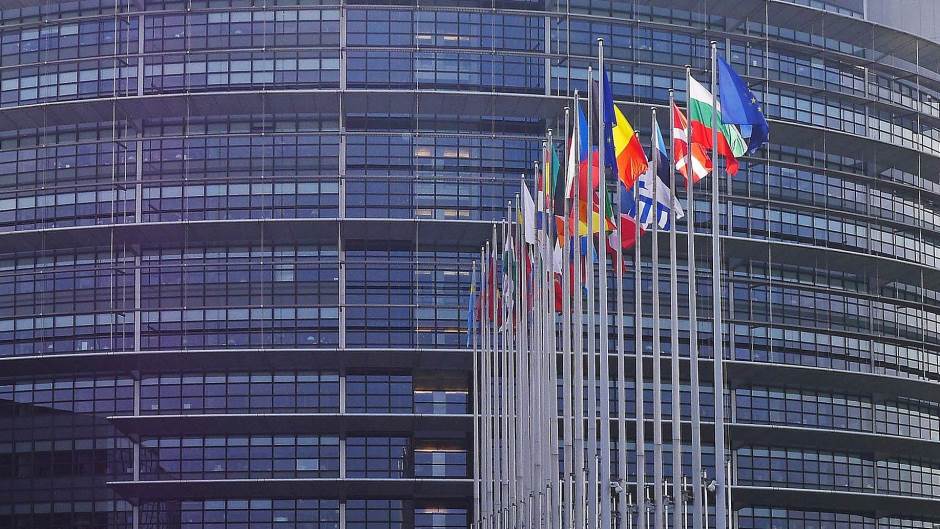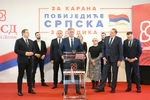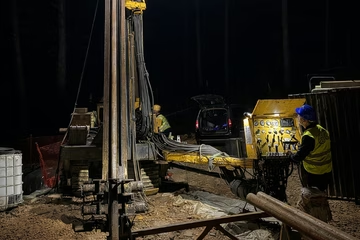Croatian MEPs attack EP report on Bosnia for leaving out ‘constituent peoples’

Four Croatian MEPs on Wednesday "sharply criticised the draft European Parliament report on Bosnia and Herzegovina in which there is no mention of the rights of the country's constituent peoples," state agency Hina reported.
Zeljana Zovko (Croatian Democratic Union (HDZ)/European People’s Party (EPP)) said during the debate at the plenary meeting of the European Parliament that the report was an attempt at erasing the constituent status of the Bosniaks, Serbs, and Croats in Bosnia and Herzegovina.
“Some in this Parliament are trying to erase the constituent peoples out of the reality of Bosnia and Herzegovina. I warn you that this once resulted in a major tragedy,” Zovko said, comparing these attempts to the policy of Serbian wartime leader Slobodan Milosevic.
“If the concept of constituent peoples is removed from this resolution, I have to say that we have learned nothing in the past 30 years,” she added.
Zovko recalled Portuguese diplomat Jose Cutiliero, the author of a peace plan for Bosnia and Herzegovina who had proposed cantonisation of the country along ethnic lines before the outbreak of the war. Portugal currently holds the rotating EU presidency.
Zovko said that the Portuguese delegation “should remember what he was trying to achieve,” Hina reported, without explaining what Zovko meant.
Ruza Tomasic (European Conservatives and Reformists (ECR)) said that the European Parliament was refusing to accept the fact that Bosnia and Herzegovina is a country of three constituent peoples, thus “denying the identity of those it should respect and listen to.”
“The resolution completely ignores the Dayton constitutional framework and constituent peoples. This is precisely the unconstitutional rhetoric to which Parliament draws attention in point 18,” she added.
Tonino Picula (Social Democratic Party/Socialists and Democrats (S&D)) said that “the non-functioning Dayton system maintains the status quo allowing the political elites to gain stronger and stronger control of diminishing resources.”
“However, it is not yet clear how to replace the worn-out Dayton system with one that will be more appropriate to a complex community that will be more effectively connected by its own differences,” he added.
Picula said that Bosnia and Herzegovina should be a functioning country of the three constituent peoples and all its citizens based on the principles of federalism, subsidiarity and legitimate representation.
Suncana Glavak (HDZ/EPP) said it was important that all three constituent peoples should be equal, particularly the Croats as the least numerous people.
The constituent peoples are “the basis without which we cannot continue,” Glavak said, calling on EU lawmakers to support amendments to include the rights of the constituent peoples in the resolution.
The resolution, drafted by EPP rapporteur Paulo Rangel, was strongly supported by speakers from the S&D group, the liberal Renew Europe group and the Greens.
Dutch Greens MEP Tineke Strik said that Parliament should avoid references to the privileged rights of the three constituent peoples in order to restore trust in politics in Bosnia and Herzegovina and that all nationalist policies should be rejected.
The EPP, the strongest political group in the European Parliament, and the ECR put forward several amendments explicitly referring to the constituent peoples.
Rapporteur Rangel said at the plenary meeting that it was time that all the constituent peoples and all the citizens had full democratic representation in accordance with the rulings by the European Court of Human Rights and European standards.
The European Parliament will vote on the report on Thursday. The text of the resolution was adopted by the Foreign Affairs Committee last week with 50 votes in favour, 8 against and 12 abstentions. All three Croatian members of the Committee – Zeljana Zovko, Tonino Picula, and Suncana Glavak – voted against.
Kakvo je tvoje mišljenje o ovome?
Učestvuj u diskusiji ili pročitaj komentare





 Srbija
Srbija
 Hrvatska
Hrvatska
 Slovenija
Slovenija


























































